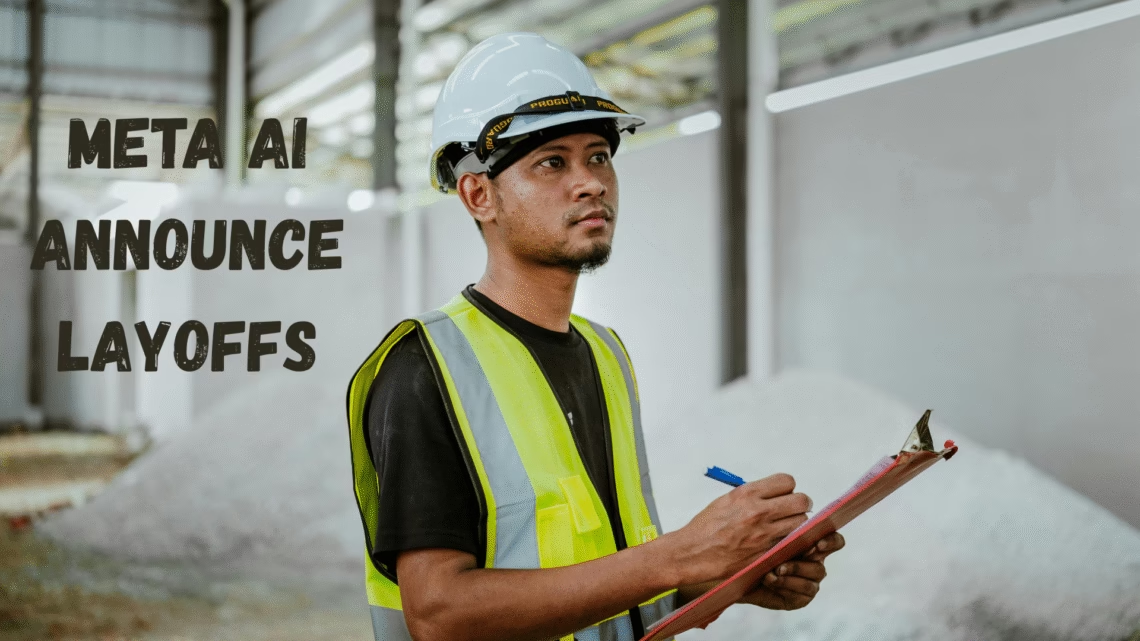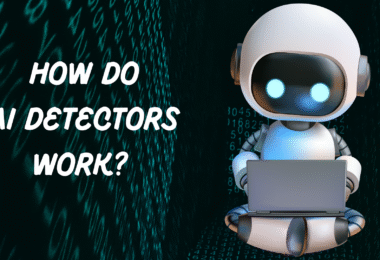A Deep Dive into the 600 Job Cuts
The tech world was shaken this week as Meta AI announce layoffs within its most advanced division. An internal memo from executive Alexandr Wang confirmed the company is cutting approximately 600 jobs from its AI Superintelligence Labs. A move that signals a major strategic shift. This isn’t just another corporate downsizing story. It’s a pivotal event that reveals the intense pressures and changing priorities inside one of the world’s most powerful tech giants. For anyone in the tech industry, from aspiring developers to seasoned investors, understanding the context and fallout is crucial. This decision forces us to ask: is this a temporary setback or a fundamental reshaping of the AI race?
What Did Alexandr Wang Say?
The news broke not through a generic press release, but giving us a raw look into the company’s decision-making. Alexandr Wang, the head of Meta’s Superintelligence Labs and the founder of the data-scale company Scale AI. He was the one who delivered the difficult news to his team.
The language used in the memo was professional yet direct, framing the difficult decision to sharpen the team’s focus and reallocate resources more effectively. While the message was delivered with corporate polish, it served as the final word for the 600 employees affected, a stark reminder of the volatile nature of even the most cutting-edge tech fields. The memo highlighted the difficult reality of a workforce reduction. Underscoring that top-tier AI talent is not immune to the broader economic and strategic winds that guide as large as Meta.
A Closer Look at the Messaging
The specific phrasing in such internal documents is always telling. Words like “reprioritization,” “efficiency,” and “strategic reallocation” are corporate code for a significant change in direction. The memo was likely intended to reassure remaining employees that the company has a clear, if painful, plan forward. However, for those on the receiving end, it marks a sudden highlighting the human cost behind high-stakes corporate strategy.
By the Numbers: The Scale of the Meta AI Announce Layoffs
To fully grasp the impact of this decision, it’s essential to look at the hard data. The scale of this announcement is significant because it is so targeted, focusing on one of Meta’s most prestigious and forward-thinking units.
| Metric | Detail |
| Company | Meta (formerly Facebook) |
| Division Affected | AI Superintelligence Labs (including FAIR lab) |
| Number of Employees | Approximately 600 staff |
| Announced By | Alexandr Wang, Head of Superintelligence Labs |
| Format | Internal Company Memo |
The concentration of cuts within the Superintelligence Labs is particularly notable. This isn’t a broad-based reduction across the entire company; it’s a precise surgical strike on a specific team dedicated to long-term, foundational AI research. This suggests the decision was not about general cost-cutting but about a specific change in the company’s research and development priorities. The FAIR lab (Fundamental AI Research), long a beacon of pure scientific inquiry in the AI world, was also mentioned as being impacted, signaling a potential shift away from open-ended research.
The Strategic Why: Unpacking the Reasons Behind the Cuts

Why would a company like Meta, which is publicly betting its future on leading the AI revolution, make such a deep cut in its most advanced labs? The reasons are complex and go far beyond simple cost-cutting, touching on the very nature of the current AI boom.
The Post-Acquisition Hangover
Its analysis of Big Tech’s AI acquisition spree, companies often find themselves with redundant roles after acquiring specialized startups. Why continue funding an internal team working on a specific problem when you can just buy a startup that has already solved it? This “acquire, don’t build” mentality can lead to a painful consolidation phase, which is likely a key driver behind these Meta AI announce layoffs.
The Unrelenting “Year of Efficiency”
This move aligns perfectly with CEO Mark Zuckerberg’s long-stated focus on creating a leaner, more disciplined company. Declaring a “Year of Efficiency” was never intended to be a single-year initiative but a permanent cultural shift at Meta. Streamlining operations, even in critical growth areas like AI, is a core tenet of this philosophy. The company is under immense pressure from investors to demonstrate profitability and fiscal responsibility, especially after heavy investments in the metaverse.
From Blue-Sky Research to Product Integration:
There is a growing divide in the tech world between AI research and AI products. The Superintelligence Labs were focused on blue-sky research—long-term, ambitious goals like creating Artificial General Intelligence (AGI). However, the market is now demanding tangible AI features in products today. Meta is likely funneling resources from these far-future projects into more immediate, product-integrated AI that can improve its advertising engine, social media algorithms, and consumer-facing features like AI assistants.
An industry analyst from Forbes suggested this is a “painful but predictable consolidation,” indicating that the initial, no-holds-barred AI arms race is maturing into a more focused and pragmatic business strategy where return on investment is paramount.
The Human Impact and Industry Ripple Effects
Beyond the corporate strategy, the human toll of this decision is immense. Six hundred highly skilled professionals, many of whom were at the top of their field, are now suddenly seeking new opportunities. However, the silver lining is that the demand for genuine AI talent remains incredibly high. These individuals are likely to be quickly snapped up by other tech giants, well-funded startups, and venture capital firms eager to inject expertise into their portfolio companies.
The layoffs also create a ripple effect across the entire tech industry:
A Chilling Effect on AI Research:
The decision may cause a “brain drain” of top researchers away from long-term superintelligence problems and toward more immediately commercial applications. This could slow down foundational breakthroughs in the field.
A Signal to Other Giants:
Competitors like Google, Microsoft, and Apple will be watching closely. This may empower them to make similar tough choices, potentially triggering a wider wave of consolidation within Big Tech’s AI research divisions.
Opportunity for Startups:
For smaller, agile AI startups, this is a unique opportunity to recruit world-class talent that was previously locked away inside Meta’s labs. This could accelerate innovation outside the traditional tech oligarchy.
What This Means for the Future of AI at Meta
So, where does Meta go from here? It’s critical to view this not as a retreat from AI, but as a recalibration.
A Sharper, More Pragmatic Focus:
Expect Meta to double down on integrating practical AI into its core revenue-generating products. We will see more AI in Facebook, Instagram, and WhatsApp, driving ad targeting and user engagement.
The Metaverse Question:
This layoff also raises questions about the company’s commitment to the metaverse. While Reality Labs is a separate division, the reallocation of resources suggests that even within AI, the focus is shifting toward technologies with a clearer and quicker path to monetization, potentially at the expense of the metaverse’s long-term vision.
A More Cautious Road to Superintelligence:
The dream of creating AGI at Meta isn’t dead, but it has certainly been deferred. The path will be slower, more pragmatic, and more closely tied to the company’s commercial products than to a pure, standalone research endeavor.
Frequently Asked Questions
Q1: Who exactly is Alexandr Wang and what is his role?
A1: Alexandr Wang is the founder and CEO of Scale AI, a company that provides data annotation services crucial for training AI models. He was brought into Meta to lead its Superintelligence Labs, bringing his expertise in scaling AI infrastructure. He was the author of the internal memo announcing these layoffs.
Q2: What is the practical difference between Meta’s general AI work and the Superintelligence Labs?
A2: Meta’s general AI division works on improving current products like making better news feeds or ad recommendations. The Superintelligence Labs, in contrast, were dedicated to the long-term, theoretical goal of creating AI that surpasses human intelligence across a wide range of tasks. The layoffs suggest Meta is deprioritizing these far-future, high-risk research projects.
Q3: With such high demand, how can Meta AI announce layoffs 600 employees find new roles?
A3: The job market for professionals with this level of expertise remains incredibly robust. Many will be recruited directly by competitors. Others may join the vibrant startup ecosystem or move into research roles in academia or venture capital, where their skills in advanced machine learning and AI model development are highly valued.
Q4: Will this decision directly impact the development and release of Meta’s AI models like Llama?
A4: While the core development of existing models like Llama will likely continue, this restructuring could slow down progress on the next generation of groundbreaking, foundational models. The focus will shift toward fine-tuning and productizing existing technology rather than pioneering entirely new architectures for superintelligence.








Leave a Comment